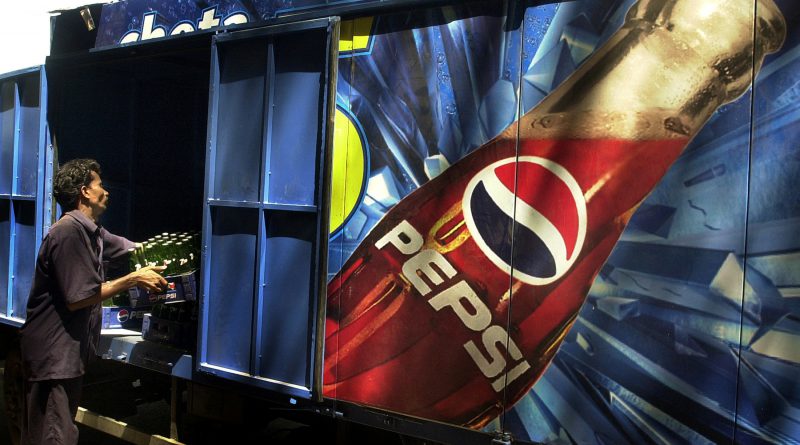PepsiCo Ends Legal Battle Over Gatorade Bar Health Claims
Judge Dismisses False Advertising Lawsuit After Mediation Talks, Closing Chapter on Sugar Content Dispute
PepsiCo has officially resolved a high-profile lawsuit that accused the company of misleading consumers about the nutritional benefits of its Gatorade protein bars.
The case, which had drawn national attention for questioning marketing claims in the booming health snack industry, was dismissed by a California federal judge — bringing a close to nearly a year of legal contention.
U.S. District Judge Casey Pitts in San Jose dismissed the proposed class-action lawsuit with prejudice, meaning it cannot be refiled.
The dismissal came at the joint request of PepsiCo and the plaintiffs — three self-described fitness enthusiasts — suggesting that an agreement was reached following court-ordered mediation, though the exact terms remain undisclosed.
The lawsuit, McCausland et al. v. PepsiCo Inc., alleged that PepsiCo violated consumer protection laws by promoting Gatorade protein bars as products that “help muscles rebuild,” are “used by the pros,” and are “backed by science.”
According to the plaintiffs, these claims painted the bars as health-promoting snacks suitable for fitness-conscious consumers. However, the complaint argued that each bar contained more sugar than protein — and even more sugar than a Snickers bar or a chocolate-frosted Dunkin’ donut.
The plaintiffs claimed that the Gatorade bars contained 28 grams of added sugar and only 20 grams of protein, contradicting PepsiCo’s marketing message.
They accused the company of misleading labeling that could deceive health-conscious consumers who believed the bars supported recovery and muscle growth.
They also emphasized that the sugar content exceeded the American Heart Association’s recommended daily limit of 25 grams for women.
PepsiCo, headquartered in Purchase, New York, is one of the world’s leading food and beverage companies, with brands including Fritos, Lay’s, Mountain Dew, and Tropicana.
In court filings, the company dismissed the lawsuit as “implausible,” arguing that it never advertised the Gatorade protein bars as low-sugar or inherently healthy.
Instead, PepsiCo maintained that its packaging accurately represented the product’s nutritional facts, and that claims like “help muscles rebuild” reflected legitimate marketing within the sports nutrition industry.
Judge Pitts initially allowed the lawsuit to proceed in August 2024, finding that reasonable consumers could have been misled by the company’s marketing language.
At that stage, the judge noted that PepsiCo’s use of phrases such as “science-backed” could imply a level of nutritional benefit inconsistent with the product’s actual sugar levels.
Consumer protection experts saw the case as a broader test of how far companies can go when making performance-related claims on food products.
The issue underscored the growing consumer demand for transparency in labeling — especially in the health and fitness market, where “high-protein” snacks have become a booming category.
The plaintiffs had argued that PepsiCo’s marketing strategy blurred the line between sports supplements and confectionery products, thereby misleading consumers who wanted post-workout nutritional support.
They also stated that if they had been aware of the high sugar content, they would not have purchased the product or would have paid less for it.
Although the court documents do not confirm whether a financial settlement occurred, legal analysts believe PepsiCo likely reached a confidential resolution to avoid prolonged litigation and potential damage to its brand reputation.
Similar class actions in recent years against major food companies have often ended in settlements rather than trials, reflecting a growing legal trend around “healthwashing” — the practice of exaggerating nutritional benefits in marketing materials.
PepsiCo’s decision to close this case comes at a time when food giants are under increasing scrutiny for the accuracy of their product labels and health claims.
With rising consumer awareness about sugar, additives, and processed ingredients, companies are now taking extra caution to ensure their messaging aligns with regulatory standards and public expectations.
The resolution of this case may influence future marketing practices across the industry. Companies could face higher pressure to ensure that performance-related terms — especially those implying health or scientific validation — are substantiated by credible data and clear communication.
While PepsiCo has not publicly commented on the case’s dismissal, the outcome signals a shift toward accountability in advertising practices within the global snack and beverage industry.
As more consumers demand nutritional transparency, brands that blend indulgence with authenticity are likely to gain greater trust and market share.


